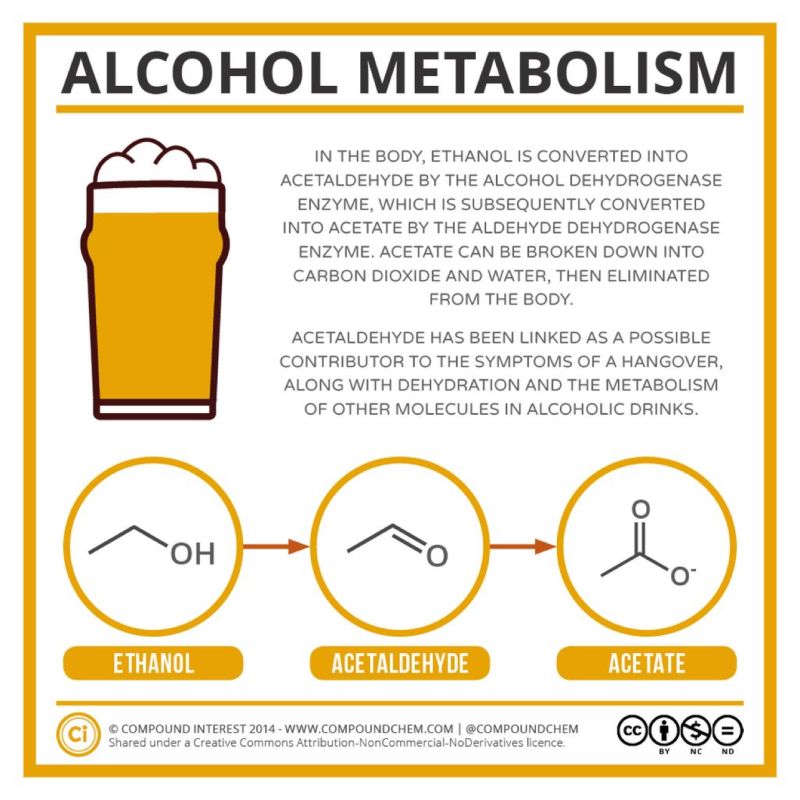Uncover the secrets of alcohol metabolism and tolerance levels, and discover why some people get drunk faster than others.

Image courtesy of Anete Lusina via Pexels
Table of Contents
Alcohol consumption is a common social activity that many people enjoy, but have you ever wondered how many beers it takes to get drunk? The answer to this question is not as straightforward as one might think. Various factors come into play when it comes to alcohol metabolism, individual tolerance levels, and the ultimate level of intoxication one may experience.
Alcohol Metabolism and Intoxication
When you consume alcohol, it is quickly absorbed into your bloodstream through the stomach and small intestine. From there, it is metabolized by the liver at a fairly consistent rate. This metabolism process is influenced by several factors, including the alcohol content of the beverage, your body weight, and whether or not you have eaten recently. As alcohol is metabolized, it produces acetaldehyde, a toxic byproduct that can contribute to feelings of intoxication.
The relationship between your blood alcohol content (BAC) and your level of intoxication is not linear. Even small increases in BAC can lead to noticeable effects, such as impaired coordination and judgment. The more alcohol you consume, the higher your BAC becomes, and the more pronounced the effects of intoxication will be.
Individual Tolerance Levels
One of the reasons why the answer to the question of how many beers it takes to get drunk varies so widely is because of individual tolerance levels. Tolerance to alcohol can vary significantly from person to person, depending on factors such as genetics, gender, and overall health. Some people may be able to drink several beers without feeling intoxicated, while others may start to feel drunk after just one drink.
Factors that can influence your tolerance to alcohol include how quickly your body metabolizes alcohol, your overall body weight, and whether you have built up a tolerance over time through consistent alcohol consumption. It’s important to note that just because someone can drink more without feeling drunk does not mean they are any less impaired. Alcohol affects everyone differently, and it’s crucial to know your limits and drink responsibly.
Other Factors Influencing Intoxication
In addition to alcohol metabolism and individual tolerance levels, several other factors can influence how quickly you become intoxicated. Body weight plays a significant role in how alcohol affects you, as a larger body mass can generally handle more alcohol before feeling the effects of intoxication. Metabolism also plays a role, as those with faster metabolisms may process alcohol more quickly.

Image courtesy of www.linkedin.com via Google Images
Gender and genetics can also impact how alcohol affects you. Women generally have a lower tolerance for alcohol compared to men, due to differences in body composition and enzyme levels. Genetics can also influence how efficiently your body metabolizes alcohol, leading to differences in how quickly you feel intoxicated.
External factors such as food intake, hydration levels, and overall health can also impact how alcohol affects you. Drinking on an empty stomach can lead to faster intoxication, while staying hydrated can help your body process alcohol more efficiently. It’s essential to consider these factors when drinking and always be mindful of your own limits and well-being.
Conclusion
Understanding the science behind how alcohol affects your body can help you make informed decisions about your drinking habits. While the answer to how many beers it takes to get drunk may vary from person to person, knowing the factors that influence alcohol intoxication can empower you to drink responsibly and stay safe. Remember to always know your limits, pace yourself, and prioritize your well-being when consuming alcohol.
Exploring the intricate relationship between alcohol metabolism, individual tolerance levels, and various factors influencing intoxication can shed light on why alcohol affects everyone differently. By delving into the science behind getting drunk, we can gain a deeper understanding of our own bodies and make more informed choices when it comes to alcohol consumption.
FAQs
Why do some people get drunk faster than others?
Answer 1: Individual tolerance levels vary due to genetics, gender, metabolism, and overall health. Factors such as body weight and food intake can also influence how quickly someone becomes intoxicated.
How does alcohol metabolism impact intoxication?
Answer 2: Alcohol is metabolized by the liver, producing acetaldehyde that contributes to intoxication. Higher blood alcohol content leads to greater impairment in coordination and judgment.
What factors influence how alcohol affects the body?
Answer 3: Factors such as body weight, metabolism, gender, genetics, food intake, hydration levels, and overall health can impact how alcohol affects an individual.
How can I drink responsibly?
Answer 4: Know your limits, pace yourself, stay hydrated, eat before drinking, and prioritize your well-being. Understanding the science behind alcohol metabolism and tolerance levels can empower you to make informed decisions about your drinking habits.
Generated by Texta.ai Blog Automation
Leave a Reply